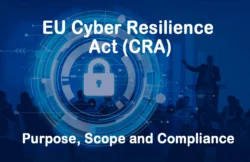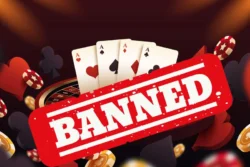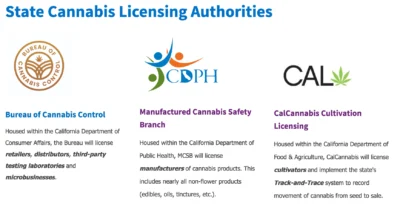
Press Release (ePRNews.com) - Oakland, CA (USA) - May 26, 2018 (UTC) - California Emergency Regulations – The triumvirate of California cannabis industry regulators – Bureau of Cannabis Control [“BCC”] [Retail and Distribution Licenses, Event Licenses], California Dept. of Food and Agriculture – “CDFA”’s CalCannabis [Cultivation Licenses, and California Department of Public Health [“CDPH”]’s Manufactured Cannabis Safety Board [“MCSB”] extended Emergency Licenses for 180 days.
Full Text of Readopted Regs
Bureau of Cannabis Control [“BCC”] [Retail and Distribution Licenses, Event Licenses],
California Dept. of Food and Agriculture – “CDFA”’s CalCannabis [Cultivation Licenses,] and
California Department of Public Health [“CDPH”]’s Manufactured Cannabis Safety Board [“MCSB”]
ADULT-USE AND MEDICINAL LICENSES
Applicants may complete one license application and request an A-designation, an M-designation, or both for the license.
Regardless of designation requested, applicants, will pay one license fee
Licensees may engage in commercial cannabis activities with any licensee, regardless of designation.
LICENSING
A financial interest includes an agreement to receive a portion of the profits of a business.
Clarifies what items must be identified on a premises diagram so the bureau can determine whether the proposed premises meet the requirements for licensure.
Requires use of the Commercial Cannabis Licensee Bond form under Title 11, California Code of Regulations, Article 56, Section 118.1 (Title 16, California Code of Regulations section 5008).
Clarifies a licensee’s notification requirements when there are certain modifications to the business (e.g., standard operating procedures, license designations, premises location).
Fees have been revised to account for the proposed licensing changes and better reflect the updates in funding needs.
ADVERTISING
Prohibits advertising or marketing from using depictions or images of minors under 18 years of age.
PREMISES
Clarifies activities licensees may conduct on their premises. Licensees authorized for retail sales may not sell or deliver cannabis goods through a drive-through or pass-out window. Deliveries of cannabis goods shall not be made to people within motor vehicles.
Clarifies premises location restrictions. Proposed premises shall not be within a private residence or in a location that requires persons to pass through a private residence.
Provides that premises adjacent to other premises engaging in manufacturing and cultivation must be separated by walls and doors.
SECURITY MEASURES
Identifies certain security personnel requirements, including age restrictions, qualifications, and when security personnel is required.
No longer requires non-storefront retailers to have security personnel
Clarifies requirements for sharing security personnel, video surveillance systems, and alarm systems when multiple premises are contained in the same building.
Identifies door and lock requirements for limited access areas.
RELABELING
Allows distributors to relabel packages with the accurate amount of cannabinoids and terpenoids post-laboratory testing in certain circumstances.
REMEDIATION • Restricts remediation of cannabis goods that fail to test to licensed manufacturers.
TRANSPORT
Clarifies the requirements for the transportation of cannabis goods. Permits for cannabis goods to be transported by foot, forklift, or similar means, when cannabis goods are transported to premises located in the same building or same parcel of land.
Allows security personnel, licensed by the Bureau of Security and Investigative Services, to be in a transport vehicle.
Clarifies how a distributor may verify that cannabis goods received are accurately reflected in the shipping manifest without unpacking and inventorying all boxes.
DELIVERY
Permits a delivery employee to complete multiple deliveries of cannabis goods if they are prepared by the retailer prior to the delivery employee leaving the licensed premises. The total amount of cannabis goods in the delivery vehicle may be up to $10,000. Requires delivery drivers to conduct age verification of customers.
MICROBUSINESSES
Clarifies microbusiness requirements. Also provides that areas of the premises designated for manufacturing and cultivation must be separated from the distribution and retail areas.
TESTING LABORATORIES
Licensees are no longer required to collect field duplicate samples.
Clarifies laboratory limit of quantification (LOQ) requirements for all Category I residual solvents or processing chemicals.
Clarifies laboratory LOQ requirements for all Category I residual pesticides.
Adds malathion and its corresponding action levels to Category II residual pesticides.
Clarifies certain Certificate of Analysis requirements when a content label is affixed to the cannabis or cannabis product batch at the time of testing.
Source : https://abizinaboxcannabis.com/california-emergency-regulations-inside/
aBIZinaBOX - Cannabis Practice Group
300 Frank Ogawa Plaza, Suite 370
Oakland, CA 94612
United States
Phone: 1-510-761-9977
Website: https://abizinaboxcannabis.com
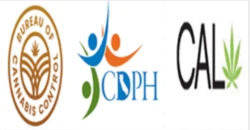
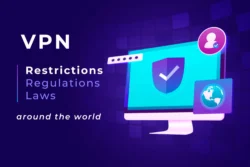
![aBIZinaBOX - California Commercial Cannabis Distribution Suite [“CCDS”]](https://cdn.eprnews.com/wp-content/thumb/2018/04/BizLogo-400-2017-Version-250x250.webp)
